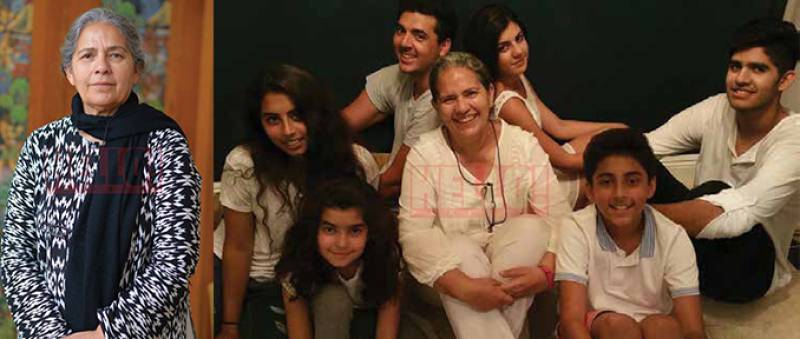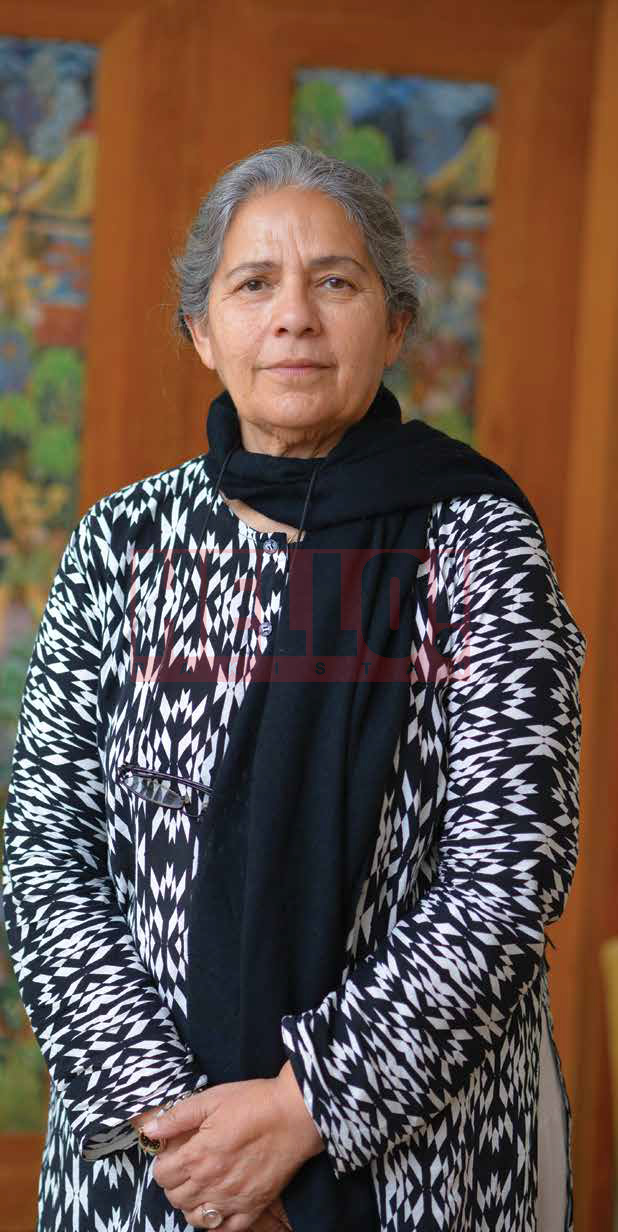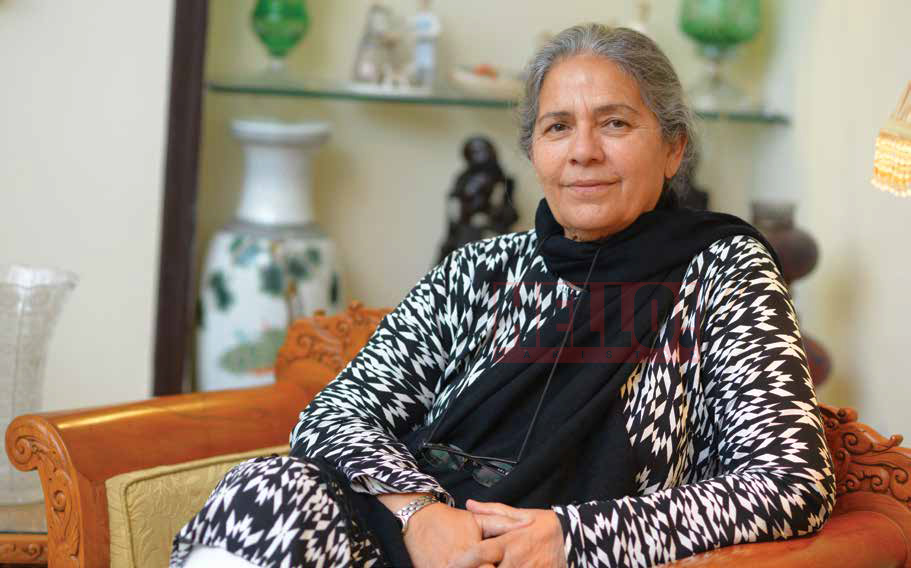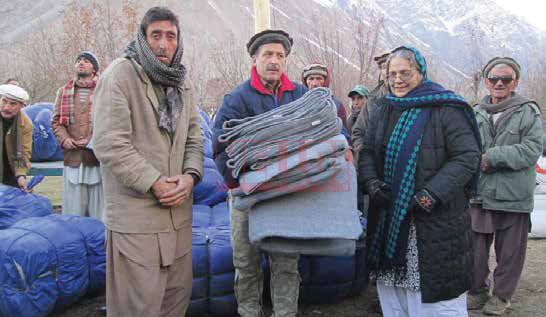The Chronic Optimist Quratulain Bakhteari Has Inspired Change for Generations to Come


How did your formative years as a refugee impact your world view?
‘My early childhood has a lot to do with who I am today. I was raised in a refugee camp. My parents were born in India and came to Pakistan during Partition – this was their first move. I was born in Multan after which they moved again, this time to Karachi. You could call it their second migration; we arrived at a convent and then moved to a place that offered rehabilitation to new refugees. Living in that situation since I was a child and learning to function in a community where people struggle to survive, the entire world of the refugee life got into my DNA. I believe everybody, at least once in their lifetime should be a refugee. One’s whole experience of life is completely different. Since then, I have always, automatically, reached out to wherever refugees are located. I’ve seen a lot; all the experiences of my childhood, combined with what the country has gone through all these years, at the risk of the safety and security of the nation – I don’t ever remember complaining about anything. We were raised to not complain but to be proactive. We were told; ‘You are living in a country, created just for you, you can’t complain about it! You don’t have a house, well, then, make one! If
you don’t have water, go get it!’

Your social work began at a young age. Tell us more?
It was in 1971 that I had become extremely involved in the Orangi Pilot Project in Karachi. It was my mission to get there and there was a lot of work to be done on developing this low income area. At the same time a huge national tragedy had occurred when half of one’s country was torn apart. The whole nation was in a state of shock, refugees were pouring in to Pakistan, and it was our duty to help. I automatically reached out to the refugees and when I look back now, I don’t think what I did then was anything but natural. It’s not a job for me, I don’t get paid for it. This is who I am. If you ask
me if it was my calling; at this age, I would say it was, otherwise, at that time, there was no direction. I never predicted what I was going to do. I stumbled on one thing after another and one thing led to another.

What kind of support did you think refugees should get?
It’s not that I am still working with refugees, but if such a situation arises, God forbid, I find myself heading to where people need help, it’s instinctual. For example, during the 2005 earthquake, I was there – even though it was not, specifically, a refugee situation. Similarly, the floods in Sindh – one immediately responds to certain calamities.
You received a master’s degree in social work; how did it help your career?
Something told me I needed to do get a graduate degree. I never liked studying and ran away from it since I was never a good student; nor did I like a structured education and never conformed to it. But a Masters in Social Work was not structured and involved field work and specific assignments, so it worked. That’s where I topped and got a gold medal. My PhD in Community Development was also similarly inspired by the work I was doing at that time in a Muhajir camp. I had joined university as a housewife after having married early, right after matric. I actually studied after I had had all my three children by the time I was 21. I did this while managing life in a joint family system. When one is young, one thinks one knows what one wants, but I had no consciousness about what was happening to me.
How did your career pan out eventually?
After many years in the field, specifically with the sanitation project in Orangi Town, the government of Baluchistan asked me to come to Quetta with the same model. It was then I realised that Baluchistan is the place to work and I became quite connected to it. They asked me to work in girl’s education and in the 90’s, I established 2200 girl schools in Baluchistan, enrolling 300,000 students in five years. Most people with this experience decide to write a book, but because I am an activist, I can’t sit for too long so that path was not for me. Instead, I established an institute of development in Baluchistan focusing on young people because they are the ones that need to understand what is needed in the country.
You adopted a refreshing approach to education. Tell us more?
Yes, people who have rich experiences and know how to share knowledge can help lots of young people to go through similar experiences, not in thirty years but in two years. We focus on people excluded from the education system somehow, individuals making up the majority in Pakistan – a harrowing 60 to 80 per cent of the population is outside the education system. Our campus is wherever our graduates are. Our graduates are where institutes are. We don’t have a grading system marking and failing. We don’t have a competition of who is ahead. We start where you are today, where you see yourself, and where you will reach.
Your son Jami, the critically acclaimed director of Moor is making a film about your life?
(Laughs) The film covers the present day and will have flashbacks from my childhood. He came up to shoot for the project in Baluchistan and has spent a lot of time there. We want this film to be made to raise money. We don’t have government funding, thus everything is dependent on the support of the public.
Did his film Moor have a good impact?
Railway personnel who saw his film cried and were emotional; there were literally lines ofpeople who watched it. The film brought a big budget to Baluchistan – an exciting place to try new ideas.
How do you think people are inspired by you?
My husband would tell me that I was trying to turn the ocean blue by using a tiny dropper, and I would respond and say that, at least, that much of the ocean has become coloured. He would also love to tell me that I was ‘a chronic optimist'.
We are pleased to offer world wide shipping wherever you are. Keep up to date with H! Pakistan and Grazia Pakistan, subscribe now!
